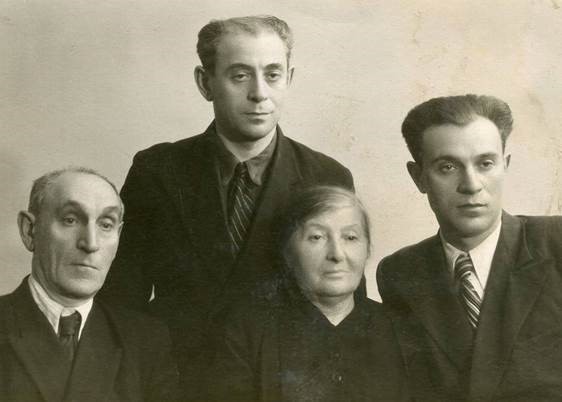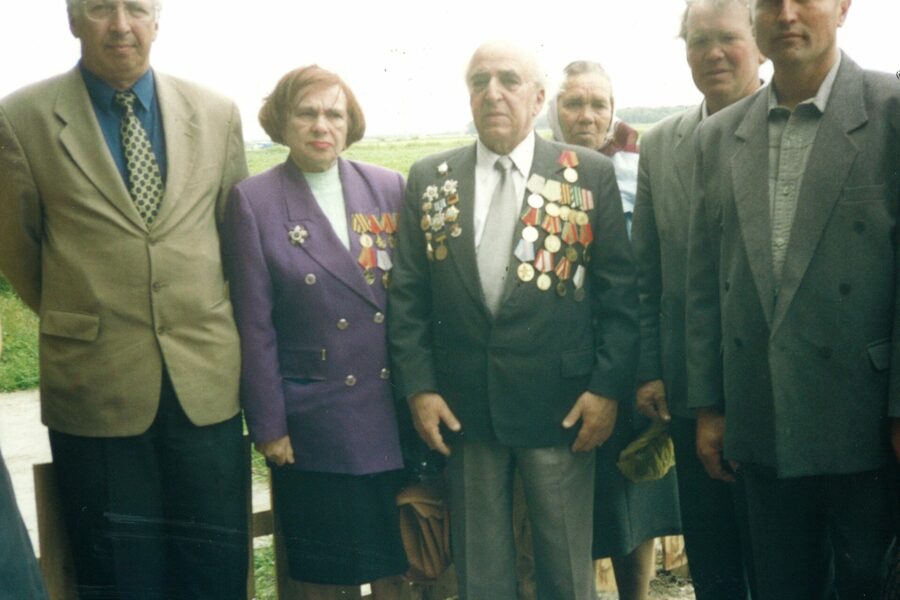In 1931, my father’s family, which included Grandfather Tzal, Grandmother Shlima, Uncle Abraham, and my father, Senya, moved to Kiev, Ukraine. They lived at 116 Zhilyansky Street. Later, my father’s grandmother, Raizl Yanovskaya, and her daughter, Elka, joined them.
In June 1941 my father was working on the construction of an airport near the border with Poland in the Rovensk District of western Ukraine. On the night of June 22, 1941, he was at the construction site. At 4:30 a.m., he was one of the first people in the U.S.S.R. to be shaken by the start of the Nazi air bombing.
At noon on June 22, 1941 a radio announcement informed us that the war with Nazi Germany had begun. On the way home from Rovno, my father witnessed constant German attacks by artillery, tanks, and aircraft. It was a miracle that during this week he was able to get back to Kiev.
During one of the bombings of Kiev, my father spent a night in the basement with his grandmother Raizl, and his aunt, Elka Gamarnik. It was the last time he ever saw them.
As a student at Kiev Institute of Civil Engineering, he was evacuated along with all other students and professors to the city of Kuybyyshev, Russia. Soon afterward his parents and brother were evacuated from Kiev to eastern Russia, too. Because Grandmother Raizl was very ill and could not be moved, Aunt Elka and her husband, Moisey, stayed with her in Kiev.
On the eve of the Nazi invasion of the Soviet Union in 1941, the Jewish population of Kiev was an estimated one hundred seventy-five thousand. The Nazi forces captured the city in mid-September within less than a fortnight.
On the 29th and 30th of September 1941, a special unit of German SS troops, supported by local collaborators, murdered more than thirty-three thousand Jews after taking them to the suburban ravine called Babiy Yar. Men, women, and children were systematically machine-gunned in a two-day orgy of execution. In subsequent months most of the remaining Jewish population was exterminated.
In 1944 my father’s family learned about the fate of their relatives who had remained in Kiev under German occupation: neighbors told him that Grandmother Raizl Yanovskaya was ill and could not even walk. The fascists threw her from the third-floor balcony. Uncle Moisey and Aunt Elka went to Babiy Yar together with other Kiev Jews.
For many years after the war, the Soviet government kept the mass murder of thousands of Jews in Babiy Yar a secret. Because of the Soviet Union’s policy, commemoration efforts encountered serious difficulty.
Twenty-two years after my father wrote his essay on Babiy Yar, Anatoly Kuznetsov published his documentary novel Babiy Yar: A Document in the Form of a Novel. The novel was first published in 1966, and Kuznetsov would later describe it as a “censored form” of publication. The literary magazine’s copy editor cut the book to a quarter of its original length and also added politically correct material.
The Russian poet Evgeniy Evtushenko wrote his poem “Babiy Yar” in 1961 in part to protest the Soviet Union’s refusal to identify Babiy Yar. He wrote: “No monument stands over Babiy Yar. A steep cliff only, like the rudest headstone. I am afraid today, I am as old as the entire Jewish race itself.”
During the next twenty years the Soviet political antisemitic machine distorted the truth of Babiy Yar. On March 12, 1970, Pravda, the official Soviet newspaper, carried a statement signed by fifty-one Jews from Ukraine that included this passage: “The tragedy of Babiy Yar will forever remain the embodiment not only of Hitler’s cannibalism but also of the indelible disgrace of their accomplices and followers: the Zionists.” In 1976 a large bronze sculpture commemorating the citizens and POWs who were shot there between 1941 and 1943 finally appeared at Babiy Yar. Placed in artificially sculpted terrain, it made no mention of Jews. Likewise, a 1981 Soviet television documentary about Babiy Yar conveyed a message of anti-Zionism. Finally in 1991, the Menorah was built in Babiy Yar to commemorate the memory of thousands of Jews who were massacred by the Nazis and their Ukrainian collaborators.
My father cherished the memory of his perished family: Grandmother Raizl Yanovskaya, Aunt Elka, and her husband, Moisey Gamarnik. Their names, along with my father’s drawings of his grandmother and aunt and his essay “Babiy Yar” were donated to the Central Database of Shoah Victims’ Names in Yad Vashem, Israel. In addition, my father created a memorial for the Chicago Association of Veterans of World War II that is in a synagogue located at the corner of California Avenue and Rosemont Street in Chicago.
I sincerely hope that my father’s efforts and those of many others will preserve the memory of those who died in Babiy Yar and in the Holocaust. Their efforts will serve as a constant reminder for future generations of the evil the Jewish people endured during World War II. My father has left his family a treasure that will be remembered for generations.
Written by Leonard Spektor, Never Heard, Never Forget: Vol. I, 2017






